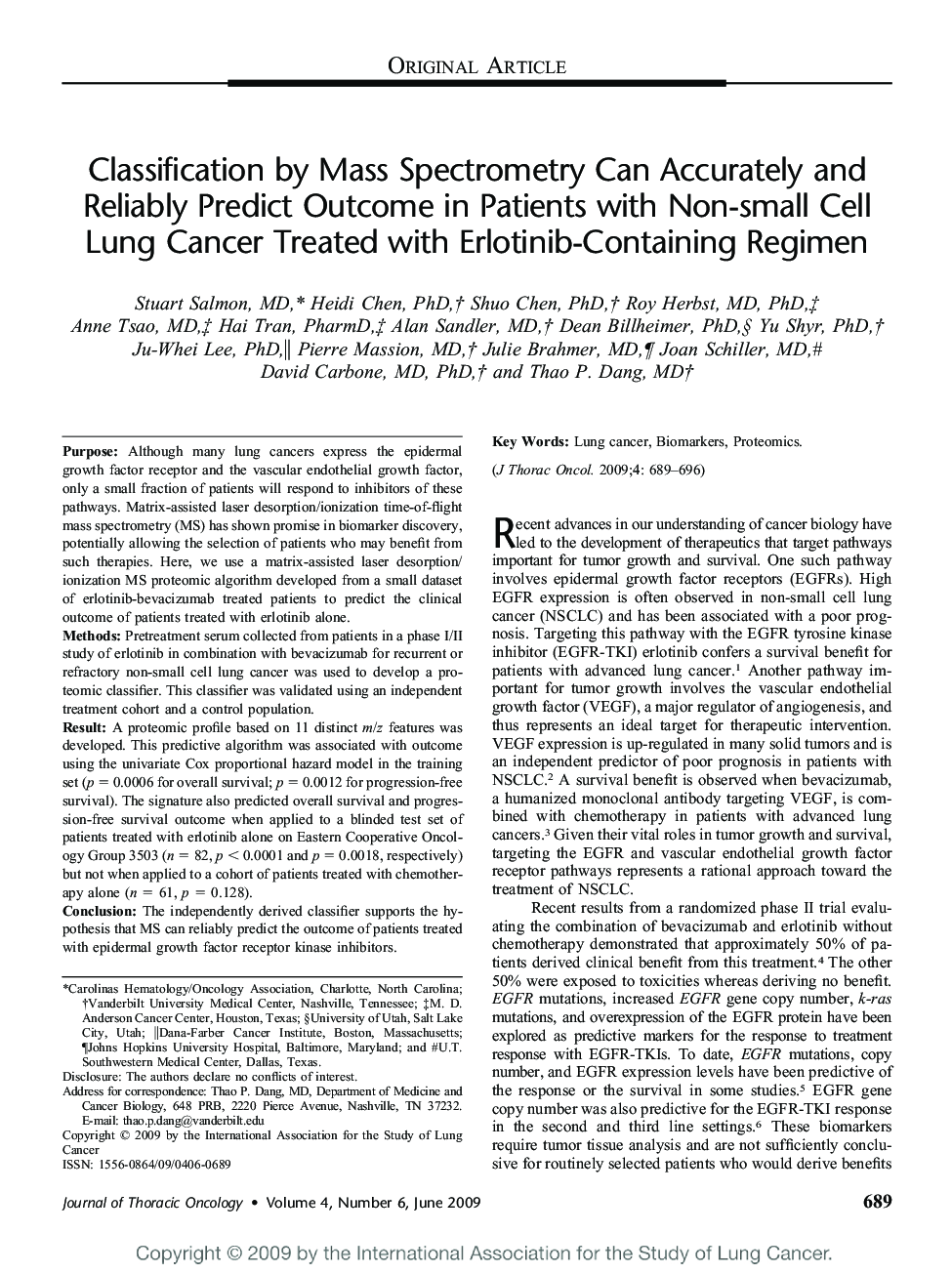| Article ID | Journal | Published Year | Pages | File Type |
|---|---|---|---|---|
| 3991281 | Journal of Thoracic Oncology | 2009 | 8 Pages |
PurposeAlthough many lung cancers express the epidermal growth factor receptor and the vascular endothelial growth factor, only a small fraction of patients will respond to inhibitors of these pathways. Matrix-assisted laser desorption/ionization time-of-flight mass spectrometry (MS) has shown promise in biomarker discovery, potentially allowing the selection of patients who may benefit from such therapies. Here, we use a matrix-assisted laser desorption/ionization MS proteomic algorithm developed from a small dataset of erlotinib-bevacizumab treated patients to predict the clinical outcome of patients treated with erlotinib alone.MethodsPretreatment serum collected from patients in a phase I/II study of erlotinib in combination with bevacizumab for recurrent or refractory non-small cell lung cancer was used to develop a proteomic classifier. This classifier was validated using an independent treatment cohort and a control population.ResultA proteomic profile based on 11 distinct m/z features was developed. This predictive algorithm was associated with outcome using the univariate Cox proportional hazard model in the training set (p = 0.0006 for overall survival; p = 0.0012 for progression-free survival). The signature also predicted overall survival and progression-free survival outcome when applied to a blinded test set of patients treated with erlotinib alone on Eastern Cooperative Oncology Group 3503 (n = 82, p < 0.0001 and p = 0.0018, respectively) but not when applied to a cohort of patients treated with chemotherapy alone (n = 61, p = 0.128).ConclusionThe independently derived classifier supports the hypothesis that MS can reliably predict the outcome of patients treated with epidermal growth factor receptor kinase inhibitors.
